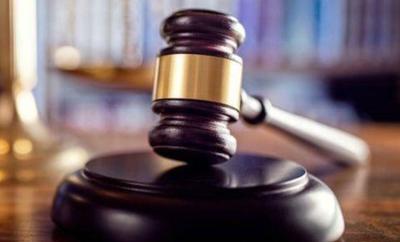State Supreme Court denies bid to defend legislative continuances as new law takes effect

The Louisiana Supreme Court has denied Attorney General Liz Murrill's request for a new hearing to argue the merits of the state's law legislative continuances allowed in court by attorney-lawmakers.
The Bayou State’s court of authority struck down a statute in October that entitled Louisiana legislators who are also attorneys to receive delays on hearings in legal cases they handle.
Murrill, the state’s top prosecutor, filed a Nov. 8 request for a new hearing. But in a nearly unanimous decision published Thursday afternoon, six of the state’s seven Supreme Court justices denied the request. Jay McCallum was the lone justice who felt the attorney general’s office deserved another opportunity to lodge arguments.
Thursday’s decision by the Supreme Court came on the same day a new state law on legislative continuances took effect. Justices declared the former statute unconstitutional in its Oct. 25 ruling. Legislators scrambled to unanimously pass a replacement measure about four weeks later, one that reworked the old legislative continuance statute by removing many of the elements that the high court struck down.
The bill sponsored by Sen. Greg Miller, R-Norco, was passed into law Dec. 4 without Gov. Jeff Landry's signature and became effective Thursday, according to the legislative track history.
Joe Gregorio, the Bossier City attorney who filed the motions that successfully challenged legislative continuances, made his case during an August hearing before the Supreme Court. His team battled against attorneys from the AG’s office who defended the merits of what was a state law at the time.
On Thursday, Gregorio reveled in the Supreme Court doubling down on its decision by denying the attorney general’s application for a second hearing. But his satisfaction was tempered by the new law that took effect in its place.
“While I appreciate the Louisiana Legislature's rewrite of the legislative continuance statute to comply with the recent Louisiana Supreme Court’s ruling in Fisher v. Harter, I am not convinced it goes far enough to prevent future abuses by legislator/lawyers of legislative continuances,” Gregorio said in a statement.
State officials, likewise, didn't appear shocked by the Supreme Court's denial and seemed to believe it was a moot issue in light of the Legislature's actions.
"The ruling is not a surprise," Murrill said in a statement Thursday. "The Legislature has passed a new law, so the prior statute is no longer applicable.”
In the past, lawmakers who also work as attorneys could petition to have hearings, motions, schedules and other court proceedings postponed in cases that they handled if they said it interfered with their legislative duties. The now-defunct law gave attorney-lawmakers “peremptory grounds” to request the legislative continuances without having to specify a reason for the requests and allowed judges just 72 hours to grant the postponements.
In its October ruling, the Supreme Court opined that gave the legislative branch too much sway in the judiciary and “usurped the courts’ power” to decide court dates.
In challenging the law, Gregorio and his partners were representing a Caddo Parish woman in a civil suit over a fender bender. She sued a teen driver who was eventually deemed liable in the crash and the teen’s father, who owned the SUV he was driving. The father hired state Sen. Alan Seabaugh, R-Shreveport, and state Rep. Michael Melerine, R-Shreveport, as their defense attorneys, and they sought multiple continuances, citing their legislative duties. Gregorio said the continuances unnecessarily delayed the case for years.
Sen. Miller’s bill, which emerged during the Legislature’s third special session, still carved out time frames for the continuances during, before and after legislative sessions. But the updated version of the law included provisions to keep attorney-lawmakers from abusing the privilege with unfair stall tactics. To seek continuances outside the legislative session period, lawmakers must show proof that they are required to attend official legislative business. It also gives opposing attorneys a path to challenge the requests if they can show “clear and convincing evidence” that the they are made improperly.

